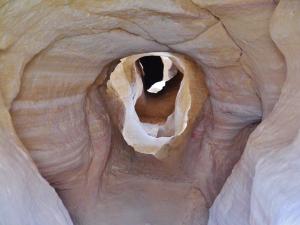This is an archive of prayers and other works relevant to erev Pesaḥ (the day prior to Passover).
Click here to contribute a work that you have prepared for erev Pesaḥ.
⤷ You are here:
🖖︎ Prayers & Praxes —⟶ 🌔︎ Prayers for the Moon, Month, and Festival Calendar —⟶ Pilgrimage Festivals (Ḥagim/Regalim) —⟶ Pesaḥ —⟶ Erev Pesaḥ 🡄 (Previous category) :: 📁 Shabbat haGadol 📁 Leil Pesaḥ :: (Next Category) 🡆 Erev PesaḥThis is an archive of prayers and other works relevant to erev Pesaḥ (the day prior to Passover). Click here to contribute a work that you have prepared for erev Pesaḥ. Filter resources by Collaborator Name Applied Jewish Spirituality | Chaya Kaplan-Lester | Isaac Gantwerk Mayer (transcription & naqdanut) | Isaac Gantwerk Mayer (translation) | Neohasid·org | David Seidenberg | the Shalom Center | Daniel Raphael Silverstein | Arthur Waskow Filter resources by Tag Aramaic | בדיקת חמץ bediḳat ḥamets | ביעור חמץ bi'ur ḥamets | candle lighting | eco-conscious | ecoḥasid | Elephantine | English poetry | English vernacular prayer | entering | fire | guided meditations | haggadah supplements | חמץ ḥamets | כוונות kavvanot | kindling | liberation from mitsrayim | Light | military | North America | Nusaḥ Yeb | potential | Prayers as poems | reconstructed text | scripts | welcoming | יציאת מצרים Yetsiat Mitsrayim | 5th century C.E. | 20th century C.E. | 21st century C.E. | 34th century A.M. | 58th century A.M. Filter resources by Category Earth, our Collective Home & Life-Support System | Ecotastrophes | Erev Shabbat | Magid | 7th Day of Pesaḥ | Roleplaying | Rosh haShanah (l’Maaseh Bereshit) | Shavuot | Sukkot | Yom Kippur Filter resources by Language Filter resources by Date Range Resources filtered by TAG: “ביעור חמץ bi'ur ḥamets” (clear filter) Sorted Chronologically (old to new). Sort most recent first? Some people think of this as a magic formula that turns ḥamets into dust. It really is a legal formula that means that you renounce ownership of any ḥamets still in your space or your domain, so that it no longer has any value to you. But is it true that dirt is valueless and ownerless? We certainly act like we own the dirt, the soil. Developers take good land, build houses on it, and truck the topsoil away to sell to other people—thereby doubling profits and doubling damage to the earth. We act like the soil can be renewed and replaced at will, poisoning its microbial communities with pesticides applied even more strongly on our GMO corn and soy, while we replace the nutrients they create with petroleum-based fertilizers. We send the soil downstream and into the ocean along with vast quantities of agricultural runoff, creating algal blooms and anoxic dead zones. In that sense we do treat the soil like it is both ownerless and valueless. But our lives are almost entirely beholden to the soil. If it is ownerless it is because it belongs to all of us, or more precisely, as the story of the rabbi deciding between claimants goes, “The land says it doesn’t belong to you or to you, but that you belong to it.” Like the dirt of the earth, the ḥamets inside your house becomes what at Burning Man we call “MOOP” (Matter Out Of Place). Finding out where it belongs means finding out that it doesn’t belong to you or to us. Returning it to the soil means tilling our stuff back into the earth, where it can become renewed, where it can become sustenance for new life. . . . Categories: Tags: 21st century C.E., 58th century A.M., Aramaic, בדיקת חמץ bediḳat ḥamets, ביעור חמץ bi'ur ḥamets, eco-conscious, ecoḥasid, English vernacular prayer, חמץ ḥamets Contributor(s):
Stable Link:
https://opensiddur.org/index.php?cat=2496
Associated Image: 
"Copper mines, Timna Valley, Negev Desert, Israel" (credit: Zairon, license CC BY-SA) (This image is set to automatically show as the "featured image" in shared links on social media.)
Terms of Use:
Be a mentsch (a conscientious, considerate person) and adhere to the following guidelines:
Additional Notes:
Support this work:
The Open Siddur Project is a volunteer-driven, non-profit, non-commercial, non-denominational, non-prescriptive, gratis & libre Open Access archive of contemplative praxes, liturgical readings, and Jewish prayer literature (historic and contemporary, familiar and obscure) composed in every era, region, and language Jews have ever prayed. Our goal is to provide a platform for sharing open-source resources, tools, and content for individuals and communities crafting their own prayerbook (siddur). Through this we hope to empower personal autonomy, preserve customs, and foster creativity in religious culture.
ויהי נעם אדני אלהינו עלינו ומעשה ידינו כוננה עלינו ומעשה ידינו כוננהו "May the pleasantness of אדֹני our elo’ah be upon us; may our handiwork be established for us — our handiwork, may it be established." –Psalms 90:17
| ||
Sign up for a summary of new resources shared by contributors each week
  |
